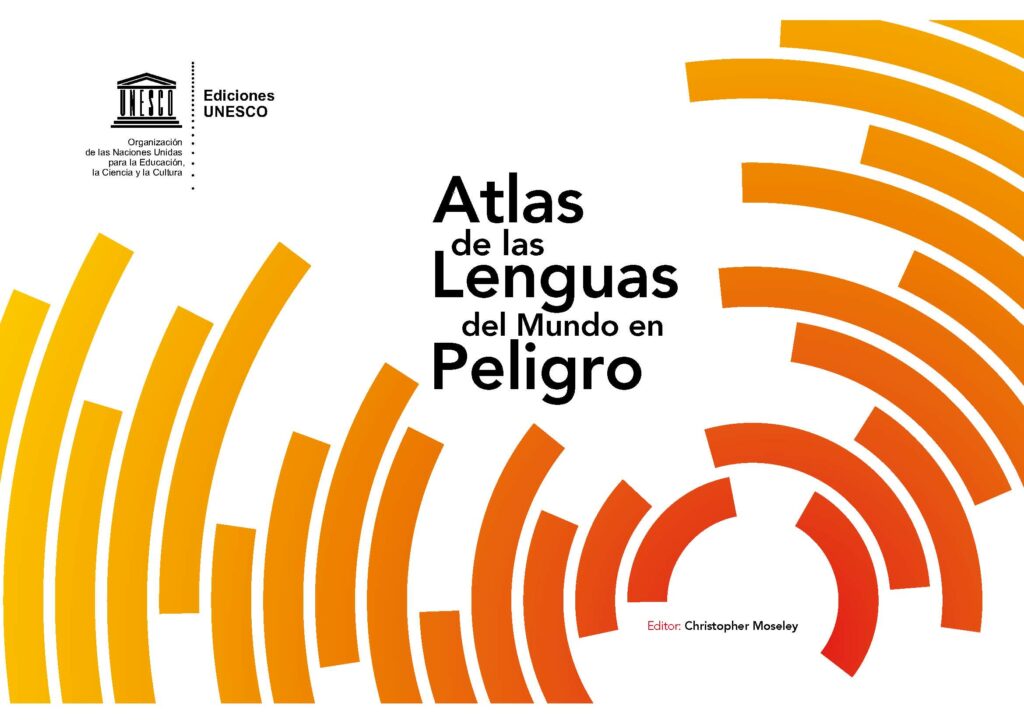Esta entrada también está disponible en: Aragonés Català Español Français English
MATERNAL SWEAR WORDS
Do you see the world as it is or as your language defines it?
Maybe you have heard that Eskimos have 12 different words for snow. In the Eskimo world there are twelve concepts while in our world there is only one. Both realities are different. This is just a small example, but there are a thousand ways in which the language you speak can change or define the way you see the world. Have you ever thought about it?
I don’t want to burden you with complicated stories, but you have to recognise that languages are sometimes a real mess. In this same sentence, Aragonese words have slipped in because those of us who have grown up in Aragon, it happens to us a lot. Does it happen to you?
Here in Aragon, Aragonese, Castilian and Catalan are traditionally spoken, but there are also houses in which so many languages are slurred that you don’t even know what you’re talking about. Is that the case with yours?
That’s all right, I have the infallible proof to know which is the mother tongue of a person who speaks several languages: swear words.
You have to put yourself in a situation that really pisses you off. For example, you’re getting told off for something you didn’t do, the guilty party is getting away with it and there’s no sign of things getting better, you put up with it as long as you can, but when you’ve had enough, you start swearing left, right and centre, straight from the gut, unfiltered, without even passing through your head for a second. That’s when you have to pay attention to the language you use: that’s your mother tongue. The one in which you feel things. And that language can not only limit the way you see the world, it can even determine your life.
Why do I say that? Because I have just discovered that 40% of the world’s population does not have access to education in a language they understand and my blood ran cold. I have imagined myself in a maths class in Japanese – my goodness, it’s just enough for me to understand it in Spanish!
Keep reading if you want to know more about it.
Description
Mother Language Day has been celebrated around the world since 2000 following an agreement at the Unesco General Conference held the previous year in Bangladesh. At the core of the Day is the commitment to cultural and linguistic diversity as a driver for a sustainable society.
Attention to interculturality is essential. Valuing one’s own language or languages and recognising those of others also contributes to the integral development of the individual and to the fulfilment of the “Quality Education” objective within the United Nations 2030 Agenda.
The commemoration of this day also makes us aware of the delicate situation of many languages that are threatened and in danger of disappearing (with all that this entails in terms of loss of cultural heritage, as languages are a means of transmitting knowledge, know-how and ways of life).
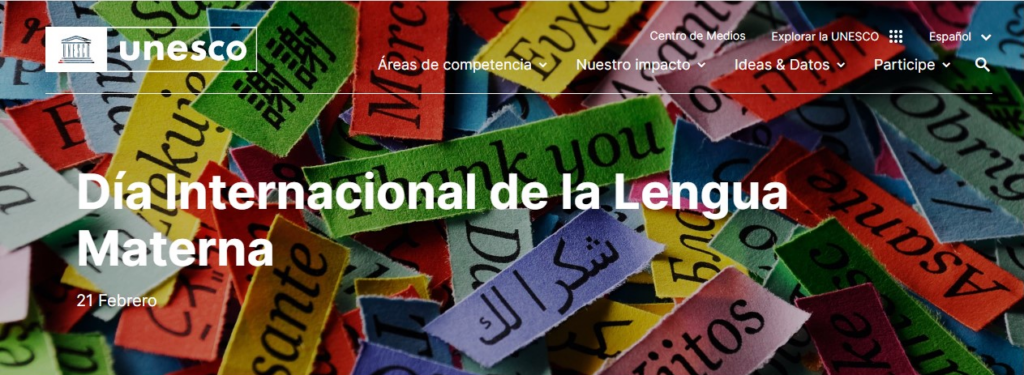
Further information
- On the Unesco website.
- On the portal of the Government of Aragon.
The objectives and content of this proposal can be related to the European Day of Languages (26 September).
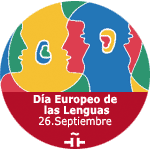
In Aragon…
Our autonomous community has the privilege of having three languages of its own: Spanish, Aragonese and Catalan. Our society is increasingly plural and there are also Aragonese men and women whose mother tongue has other origins (from Arabic and Chinese to Romanian and Slavic languages, among many others).
Languages are a treasure, they are a legacy and it is our duty to preserve them… and to use them. Because they are first and foremost vehicles of communication, they build bridges of understanding. They should never be designed to mark distances.
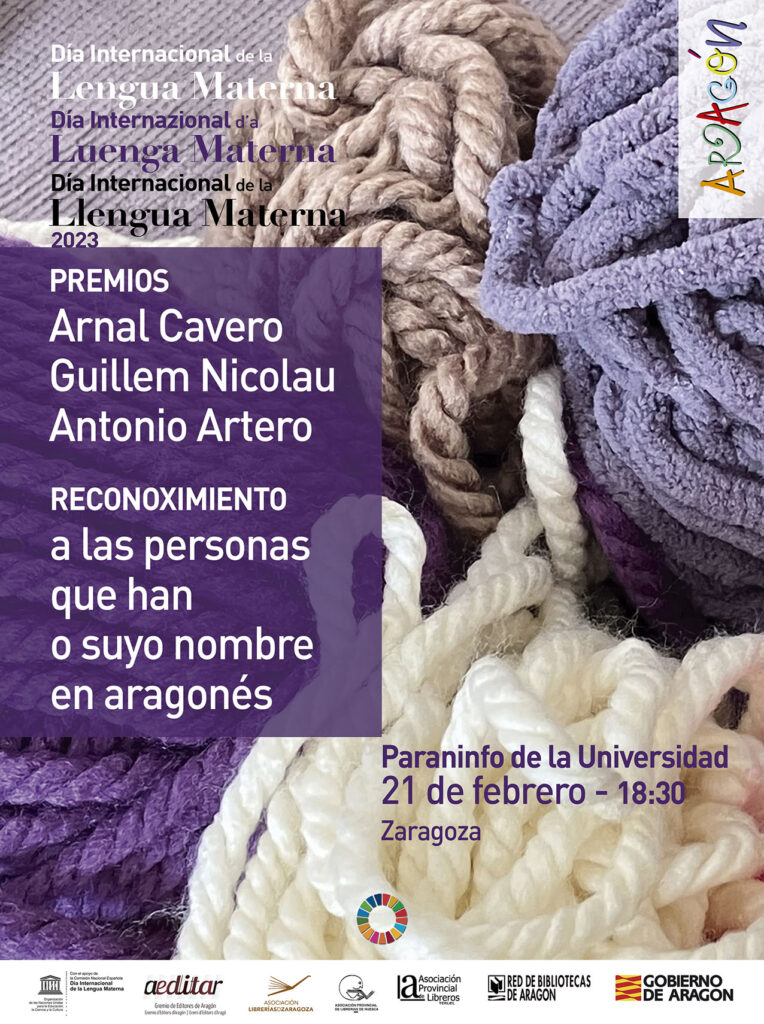
In line with this philosophy and this plural reality, every year in Aragon, International Mother Language Day has an important agenda of activities in Aragon, with special attention to the minority languages: plays and concerts, audiovisuals and exhibitions, talks and book presentations…
An example of the 2023 programme can be found on the portal that the Government of Aragon dedicates to this linguistic reality.
A detail and a reflection
It is estimated that every year some twenty-five languages disappear around the world. Many others are threatened. The Atlas of the World’s Languages in Danger (UNESCO) updates data on this subject and stresses the seriousness of the situation.
Forty percent of the world’s population does not have access to education in a language they speak or understand. However, there has also been progress in mother tongue-based multilingual education (particularly since the first studies), and there is a growing commitment by institutions to bring it to life in the public sphere.
Adding a nuance related to technologies and their double face, the Director-General of Unesco, Audrey Azoulay, expressed herself:
Technology can provide new tools to preserve it, for example, by allowing us to record and preserve languages that sometimes exist only in oral form, thus facilitating their dissemination and analysis. In short, they make local languages a common heritage. However, given the risk of linguistic standardisation brought about by the Internet, we must also be aware that technological progress will only serve multilingualism as long as we make an effort to ensure that this is the case.
Suggestions for teachers
International Mother Language Day has a certain “interchangeability” with dates such as the European Day of Languages (26 September). This event, conceived as a tribute to the linguistic diversity of a continent, Europe, with more than 200 languages of its own, in which the EU has 24 official languages, where there are some 60 regional or minority languages and in which many other languages from other parts of the world are spoken… concentrates many didactic proposals around it.
There are several teachers’ blogs on the web that propose activities of different profiles. Among the ones we have seen, we think it is worth mentioning: 6 activities on the languages of the world (The Ele Class).
This “interchangeable” nature means that the two days (26 September and 21 February) can be considered perfectly compatible, feeding back into each other.
The environment of each school (its geographical location, the local and regional cultural reality, the linguistic area) and the internal reality of each classroom (its social and ethnic composition, for example) can condition strategies and help to establish specific methodologies.
It is possible to play with the experience of the pupils: if they come from abroad and their mother tongue is different from Spanish; if they use Aragonese or Catalan at home, if a family member speaks it, if different words are used in a specific context… It is interesting to turn everyday experiences into objects of verbalisation, elements of comparison and learning.
The educational resources provided on the Government of Aragon (where there is also a private area for teachers) can be very useful.
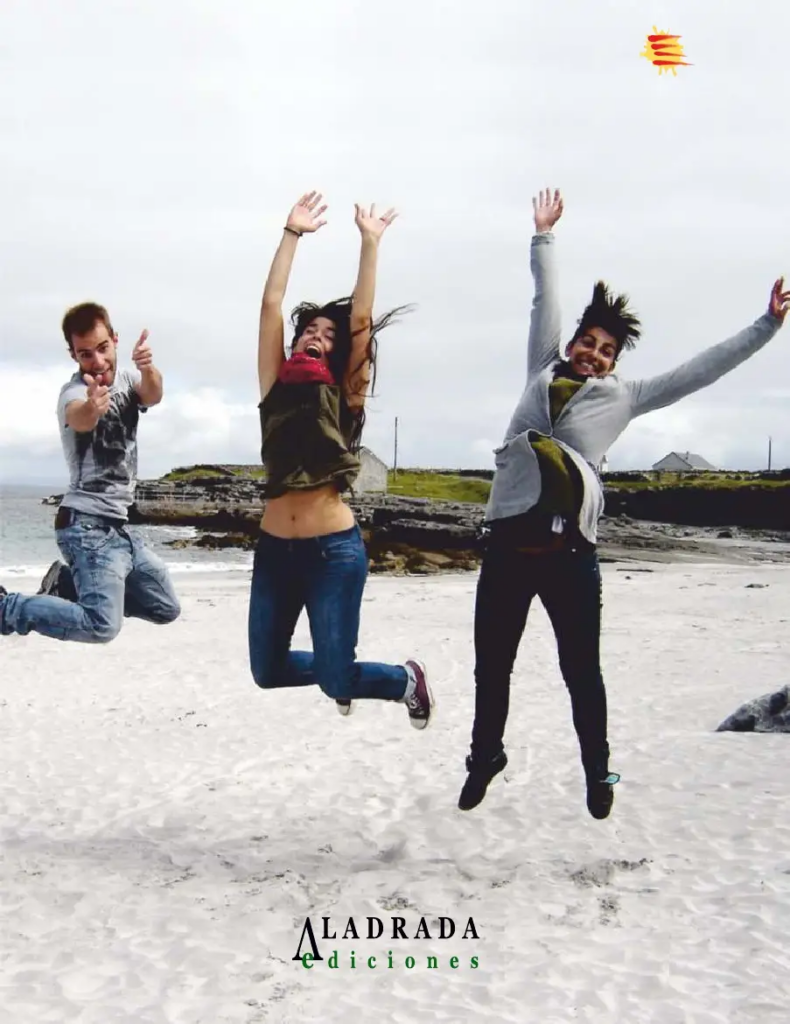
We recommend watching and (if considered) discussing the documentary “Aragon and its languages”, which is freely available on the Youtube channel “Lenguas de Aragón”:
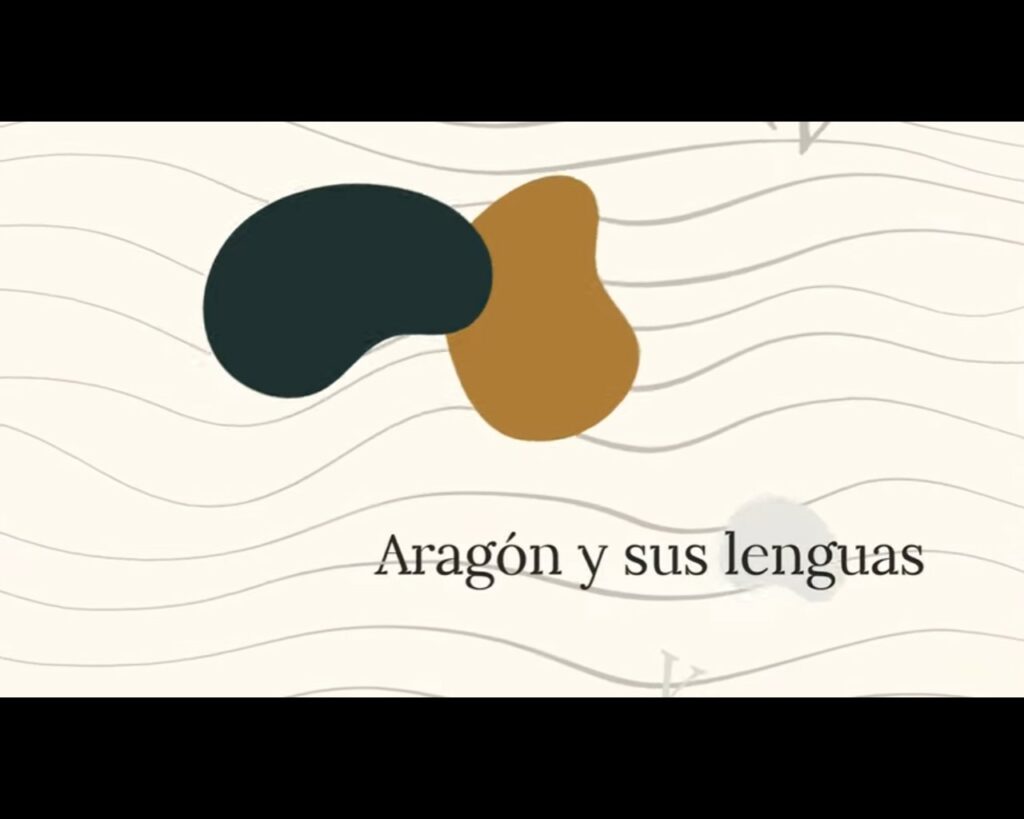
Objectives that this proposal helps to meet
ESO:
- To develop basic skills in the use of information sources in order to acquire new knowledge with a critical sense. To acquire a basic preparation in the field of technologies, especially those of information and communication.
- To understand and express themselves correctly, orally and in writing, in the Spanish language and, where appropriate, in Aragonese or Aragonese Catalan, complex texts and messages, and be initiated in the knowledge, reading and study of literature.
- To understand and express themselves in one or more foreign languages in an appropriate manner.
- To know, value and respect the basic aspects of one’s own and others’ culture and history, as well as artistic and cultural heritage.
Baccalaureate:
- To consolidate the habits of reading, study and discipline, as necessary conditions for the effective use of learning, and as a means of personal development.
- To master, both orally and in writing, the Spanish language and, where appropriate, Aragonese or Aragonese Catalan.
- To express themselves fluently and correctly in one or more foreign languages.
- Use information and communication technologies with competence and responsibility.
Subjects with which it can be linked
- Spanish Language and Literature / Foreign Languages / Languages of Aragon (ESO, 1st and 2nd cycles).
- Spanish Language and Literature / Foreign Languages / Languages of Aragon / Others depending on modality (Baccalaureate).
Development of competences
- Competence in linguistic communication.
- Cultural awareness and expressions

